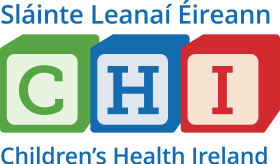Repatriation of paediatric haematopoietic stem cell transplant services to Ireland
Children’s Health Ireland welcomes the recent Health Technology Assessment (HTA) by HIQA outlining the costs, organisational issues and impact to families of providing haematopoietic stem cell transplant (HSCT) treatment to children with certain rare inherited conditions abroad versus at home in Ireland.
Feb. 20, 2023
News
The assessment found that undergoing a stem cell transplant is a stressful time for children, young people and their families and travelling abroad increases this burden. Families, partners and siblings can be separated from one another for up to six months.
HSCT (sometimes known as a bone marrow transplant), is a treatment whereby a person is given a transfusion of healthy blood stem cells from their own body or from a donor. While HSCT for haematological malignancies and bone marrow failure disorders is available for paediatric patients in Children’s Health Ireland, HSCT treatment for Irish paediatric patients with non-malignant conditions (e.g. severe inborn errors of immunity or metabolism) has typically been provided in the UK and funded through the HSE’s Treatment Abroad Scheme.
We want to thank our specialist clinicians and management in Children’s Health Ireland who contributed to this assessment and support HIQA’s findings to recommend providing this treatment in Ireland instead of overseas. This HIQA Health Technology Assessment report was commissioning by the Department of Health who will now consider its findings.
Bed capacity will increase when the HSCT services for children with non-malignant conditions needing bone marrow transplant moves to the new children’s hospital. However, this would also rely on the recruitment of additional staff, such as, skilled nursing and support staff, across a range of disciplines to deliver this service in Ireland.
